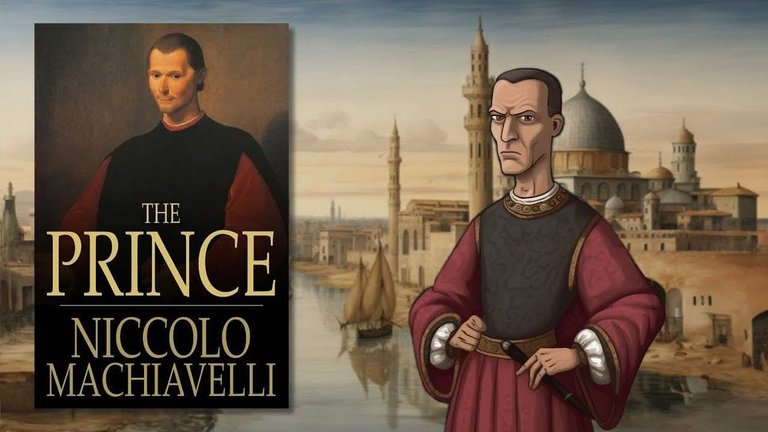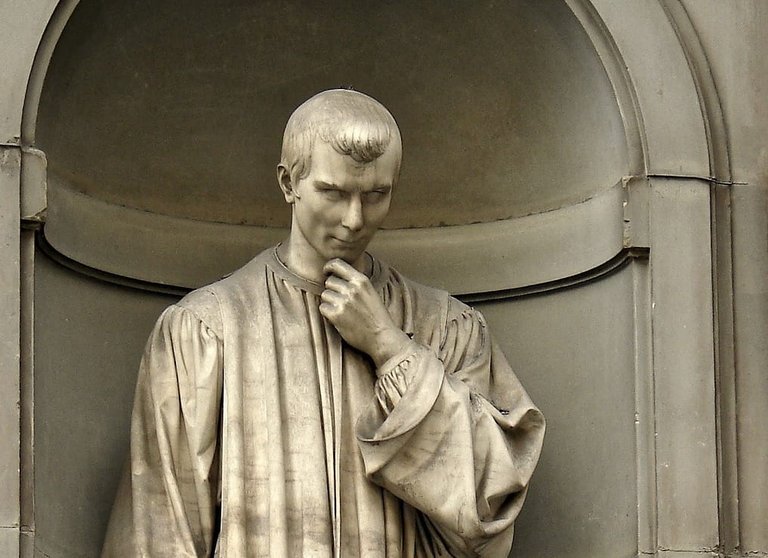Machiavelli’s "The Prince": A Timeless Guide to Power in Modern Politics
Niccolò Machiavelli’s The Prince has captivated readers for centuries with its sharp, unapologetic insights into the nature of power and leadership.
Written in 1513 during Machiavelli’s exile, the book offered advice to rulers of his time on how to secure and maintain power.

Often described as the first modern political treatise, The Prince broke away from the moralistic and idealistic approaches to leadership that were popular in Machiavelli’s era.
Instead, it presented a pragmatic, even ruthless, view of governance that many saw as controversial.
Fast forward over 500 years, and Machiavelli’s lessons remain eerily relevant. As politics evolve in complexity, his observations about power dynamics, human behavior, and statecraft resonate in modern democracies and authoritarian regimes alike.
This post explores the core ideas of The Prince, discusses their timeless nature, and reflects on their application to contemporary political landscapes.
Historical Context and Key Ideas of "The Prince"
Machiavelli wrote The Prince against a backdrop of political instability in Renaissance Italy.
With the Italian peninsula fragmented into competing city-states and external powers vying for influence, Machiavelli witnessed firsthand the fragility of power and the chaos of ineffective leadership.
After losing his position as a government official in Florence, he penned The Prince as a guidebook for rulers, particularly Lorenzo de’ Medici, in hopes of regaining political favor.
The central themes of The Prince revolve around power—how to acquire it, how to maintain it, and how to wield it effectively.
Machiavelli argued that rulers must focus on pragmatism and results rather than adhering to traditional ethical norms.
Among the book’s most enduring ideas is the concept of virtù (a combination of skill, courage, and decisiveness) and fortuna (luck or circumstances beyond one’s control).
According to Machiavelli, effective leaders must master virtù to harness or overcome the unpredictability of fortuna.
One of the most famous maxims from The Prince is “the ends justify the means.”
While Machiavelli does not explicitly use this phrase, it encapsulates his belief that successful rulers should not shy away from using deception, manipulation, or cruelty if these actions are necessary to secure the stability of their state.
Another key insight is the debate over whether it is better for a leader to be loved or feared.

Machiavelli concludes that while being both is ideal, fear is ultimately more reliable in maintaining order and control.
The Prince’s Timeless Lessons
The enduring appeal of The Prince lies in its unflinching examination of human behavior and the mechanisms of power.
Machiavelli’s insights are grounded in a realistic understanding of human nature: people are self-interested, fickle, and often resistant to change.
Recognizing these tendencies, he argued, is essential for any leader who seeks to maintain authority and navigate political challenges.
One of the timeless lessons of The Prince is the importance of appearances in leadership.
Machiavelli emphasized that rulers should prioritize the perception of virtue over its actual practice.
A leader who appears compassionate, just, and honest can win public favor, even if they occasionally act contrary to these virtues in private.
This principle has profound implications for contemporary politics, where media narratives and public image can make or break a politician’s career.
Another significant insight is the necessity of adaptability.
Machiavelli stressed that successful leaders must be pragmatic and willing to adjust their strategies to changing circumstances. In the face of unpredictable challenges—be it war, economic crises, or political scandals—a ruler’s ability to pivot and adapt is crucial.
Finally, The Prince offers a sobering perspective on ethics and governance.
While Machiavelli does not dismiss morality entirely, he argues that leaders must subordinate ethical considerations to the practical demands of ruling.
This pragmatism often raises uncomfortable questions about the balance between morality and efficacy—a dilemma that continues to confront modern politicians.
Machiavelli in Modern Politics
In today’s world, Machiavelli’s principles echo loudly in the corridors of power. Politicians across the ideological spectrum often employ strategies that align with his pragmatic approach, even if they would hesitate to label them as "Machiavellian."
Consider the role of media and public perception in modern governance. Politicians meticulously craft their public personas to appeal to voters, often prioritizing optics over substance.
Social media platforms have amplified this dynamic, enabling leaders to project carefully curated images while controlling narratives.
This mirrors Machiavelli’s advice that rulers should manage appearances to maintain their authority and influence.
Another Machiavellian concept evident in contemporary politics is the prioritization of pragmatism over ideology.
Many leaders adopt policies not because they align with their stated values, but because they are politically expedient.
This can be seen in coalition-building, compromise-driven legislations, or the strategic abandonment of unpopular stances to preserve power.
Fear and respect, another of Machiavelli’s dichotomies, also manifest in leadership styles today.
Authoritarian leaders often rely on fear to suppress dissent and maintain control, while democratic leaders strive to strike a balance between authority and approachability.
In either case, the underlying goal—maintaining stability and influence—aligns with Machiavelli’s teachings.
Conclusion
Niccolò Machiavelli’s The Prince endures as a powerful exploration of leadership and power dynamics.
While it was written for Renaissance rulers navigating political turmoil, its insights transcend time, offering valuable lessons for contemporary politicians and leaders.
At its core, The Prince challenges us to grapple with the moral complexities of governance, forcing us to consider whether the pursuit of power can ever truly be reconciled with the principles of justice and virtue.
In an era where politics remains as turbulent and unpredictable as ever, Machiavelli’s words continue to serve as both a guide and a warning—a testament to the enduring complexities of leadership and human nature.
Posted Using INLEO
Congratulations @grandpapulse! You have completed the following achievement on the Hive blockchain And have been rewarded with New badge(s)
Your next target is to reach 700 comments.
You can view your badges on your board and compare yourself to others in the Ranking
If you no longer want to receive notifications, reply to this comment with the word
STOPHello.
There is reasonable evidence that this article is machine-generated.
We would appreciate it if you could avoid publishing AI-generated content (full or partial texts, art, etc.).
Thank you.
Guide: AI-Generated Content = Not Original Content
Hive Guide: Hive 101
If you believe this comment is in error, please contact us in #appeals in Discord.